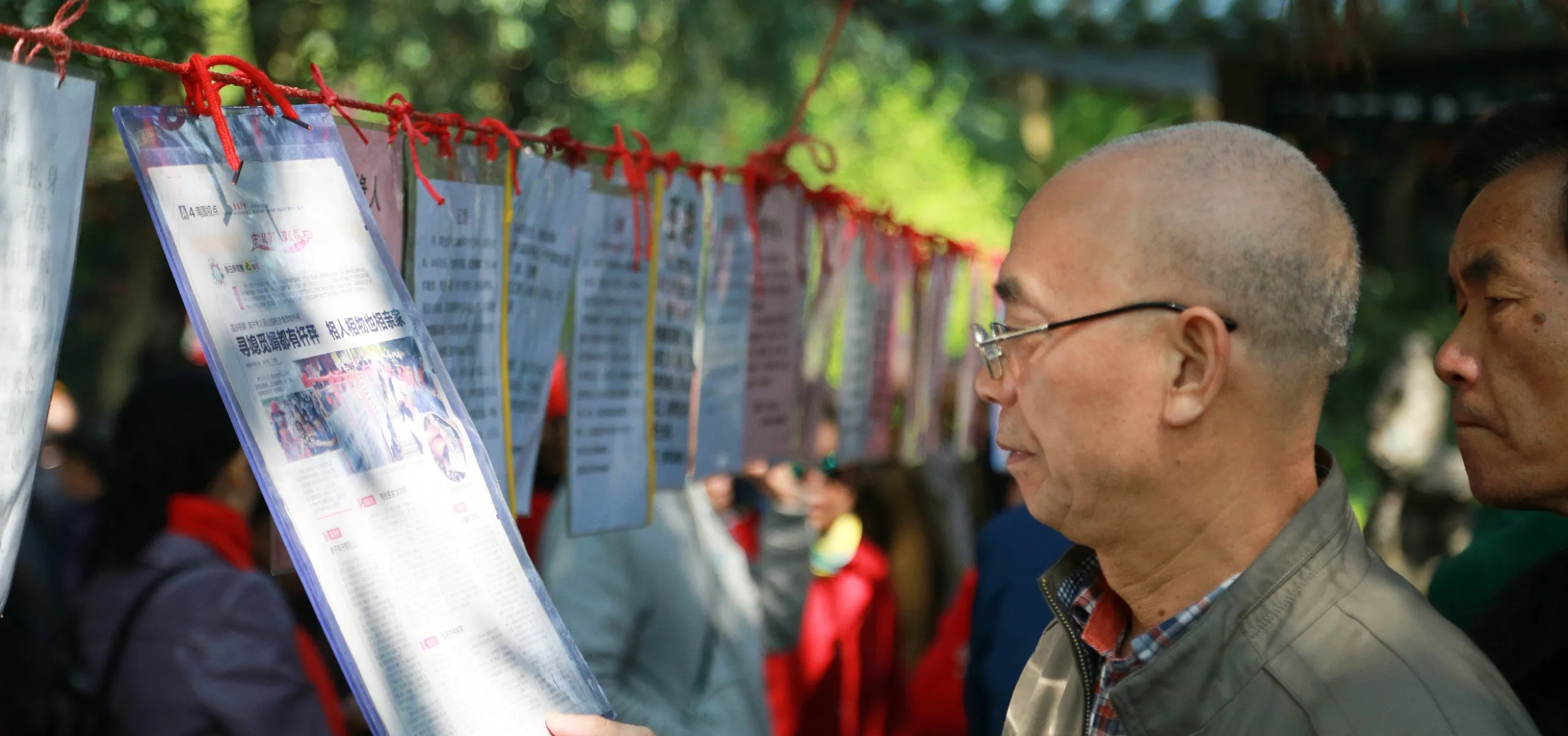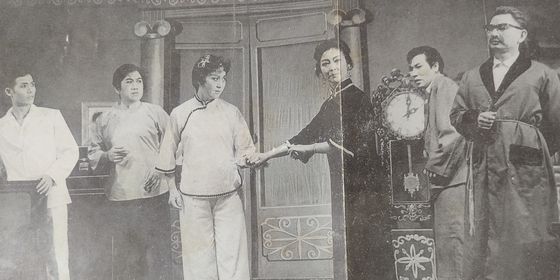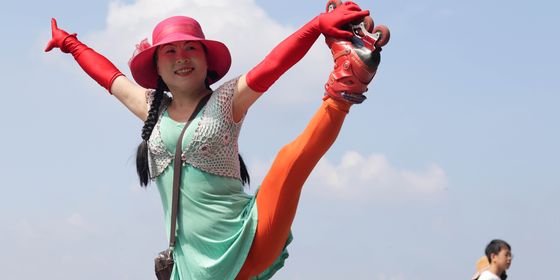At Beijing’s Changpuhe Park, hundreds of elderly Chinese have been looking for a partner for company, sex, and mutual care, but few succeed
“An apartment is a must,” a man in his late 60s emphasizes to several of his male peers at Changpuhe Park in Beijing’s Dongcheng district on a Saturday morning, citing a common requirement for marriage in China.
But they are not talking about their children, whose generation’s anxieties about marriage—and the seeming impossibility of affording it—is a well-reported phenomenon in Chinese society today. Rather, these uncles are sharing their own stories of successful and failed dates. They hope to find themselves a partner at this very park, one of Beijing’s most popular xiangqin (相亲, matchmaking) sites for divorced, widowed, or unmarried city residents aged between 40 and 80.
At around 10 a.m. there are only about a dozen of them in the park. They rapidly fire questions as TWOC’s reporter approaches, “Have you come to xiangqin too? How old are you?” One woman, who guesses that TWOC is too young to be looking for a partner among her peers, suggests we instead go to Zhongshan Park, a spot well-known for hosting a matchmaking corner (相亲角) for young singles in their 20s or 30s (or rather, parents who attend on their behalf). Most, though, become reticent after knowing TWOC is here as reporters, and refuse to answer questions.
Two men sitting on a bench explain their refusal: “Who would want to have their photos taken in secret and shared online?” offers one. Another claims: “Some women are just here for money. They ask for millions of yuan from a potential partner. How would they tell you about their true feelings?” Apparently probing outsiders, who may come only for a taste of “novelty” as reported online, are not welcomed by many here.
Changpuhe Park and the Temple of Heaven in Beijing, Zhongshan Park in Wuhan, and Haipohe Park in Qingdao are just some of the spots that have recently gone viral for their population of twilight romance-seekers. They have attracted a surge of attention from both the media and general public, especially after several dating shows featuring middle aged or elderly contestants began airing last year, like Jilin TV’s Love Never Comes Late (《缘来不晚》), Liaoning TV’s The Choice of Love (《爱的选择》), and Heilongjiang TV’s Blind Date and Fall in Love (《相亲相爱》).
Featuring middle-aged and old contestants, going on blind dates and answering questions from potential partners, the shows won over viewers by spotlighting a demographic not usually depicted on TV. Young viewers were sometimes left stunned by the straightforward views of older entrants. “It’s important that the function is there, whether I use it or not,” says one female contestant on Love Never Comes Late, about her sexual needs from a partner. Another woman turns down a date to his face due to his unsatisfactory height and education.













